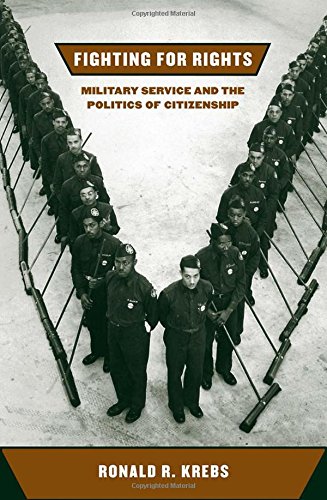

Most ebook files are in PDF format, so you can easily read them using various software such as Foxit Reader or directly on the Google Chrome browser.
Some ebook files are released by publishers in other formats such as .awz, .mobi, .epub, .fb2, etc. You may need to install specific software to read these formats on mobile/PC, such as Calibre.
Please read the tutorial at this link. https://ebooknice.com/page/post?id=faq
We offer FREE conversion to the popular formats you request; however, this may take some time. Therefore, right after payment, please email us, and we will try to provide the service as quickly as possible.
For some exceptional file formats or broken links (if any), please refrain from opening any disputes. Instead, email us first, and we will try to assist within a maximum of 6 hours.
EbookNice Team

Status:
Available4.6
36 reviewsLeaders around the globe have long turned to the armed forces as a "school for the nation." Debates over who serves continue to arouse passion today because the military's participation policies are seen as shaping politics beyond the military, specifically the politics of identity and citizenship. Yet how and when do these policies transform patterns of citizenship? Military service, Ronald R. Krebs argues, can play a critical role in bolstering minorities' efforts to grasp full and unfettered rights. Minority groups have at times effectively contrasted their people's battlefield sacrifices to the reality of inequity, compelling state leaders to concede to their claims. At the same time, military service can shape when, for what, and how minorities have engaged in political activism in the quest for meaningful citizenship.
Employing a range of rich primary materials, Krebs shows how the military's participation policies shaped Arab citizens' struggles for first-class citizenship in Israel from independence to the mid-1980s and African Americans' quest for civil rights, from World War I to the Korean War. Fighting for Rights helps us make sense of contemporary debates over gays in the military and over the virtues and dangers of liberal and communitarian visions for society. It suggests that rhetoric is more than just a weapon of the weak, that it is essential to political exchange, and that politics rests on a dual foundation of rationality and culture.